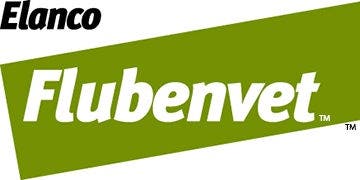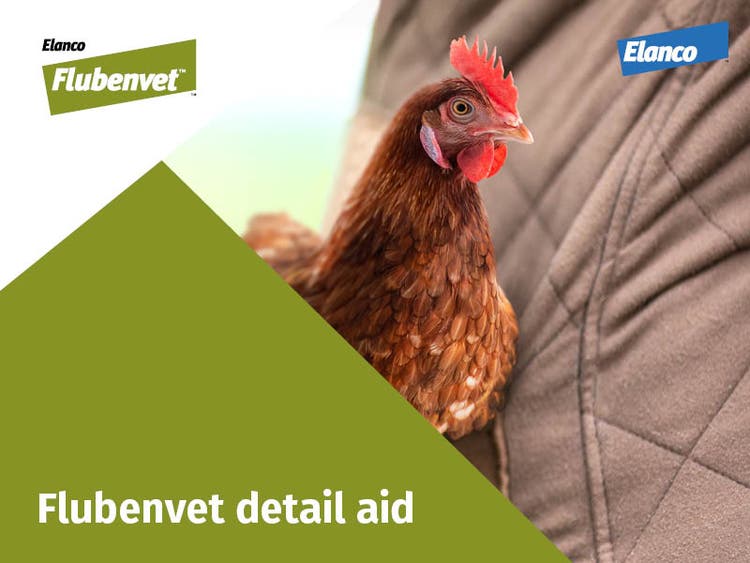Keeping on top of the worm burden
Worm burdens present a constant challenge to all poultry producers, but especially those with free-range systems, and without a robust worming programme, both profitability and bird welfare levels can be significantly reduced.
One Noble Foods producer, who has successfully managed his flock’s worm burden since first diversifying to free-range egg production from a purely arable enterprise, is Lincolnshire based farmer, James Gent.
“We currently have a flock of 62,000 birds in two different systems, split across five sheds. Half the birds are on a more modern Big Dutchman multitier system throughout two sheds, while the remaining three sheds are a flat deck system with Big Dutchman nests,” he says.
“We’ve produced for Noble Foods for over 20 years now, and Flubenvet™ has formed part of our worming strategy since day one, helping birds to reach their performance potential and meet our targets. Back then Flubenvet was the only suitable treatment available, and while there are now a few alternatives on the market, there’s nothing that matches its efficacy in my opinion,” says James. He explains that his birds are treated with the product every six to eight weeks as part of a robust preventive programme that tackles all major worm species, at all life stages. Treating regularly stops the problem before birds show visible clinical symptoms and performance is impacted. “Every packer wants to be supplied with good eggs and investing in a quality wormer that does what it says on the tin is worth it when you’re rewarded for producing quality eggs.”

For James, it is very important that the worming process is as streamlined and easy as possible, which is why he values the fact that Flubenvet is administered via the feed. “While we’re always careful not to change too many things at once to avoid stress, the medicated feed comes straight from the feed supplier and is fed as normal, so we have total peace of mind,” he says. “It would be a complete nightmare for us to administer wormer via the water lines, which are always very busy. We’re often putting cleaner, vaccines or a pH corrector through so something else to fit in just wouldn’t work for us.”
On top of the worming programme, James employs strict management protocols as part of an integrated approach to tackling both worm and other disease challenge. “We implement everything we can to protect the birds from health threats. The sheds are kept as clean as possible, we mow and harrow the pasture and lime the sides of the sheds while birds are out. Then during the turnaround period the sheds are thoroughly cleaned out,” he says.
Four major worm threats
- Large roundworms (Ascaridia galli) live in the small intestine and can be up to two inches long; in heavy infestations these worms may be visible in fresh droppings1
- Hairworms (Capillaria spp) are much smaller and are barely visible to the naked eye but can cause significant commercial damage even in moderate infestations2
- Caecal worms (Hetarakis gallinarum) are smaller and inhabit the lower end of the gut which can transmit blackhead – a serious disease of chickens and turkeys causing diarrhoea, egg drop and sudden death2
- Gapeworms (Syngamus trachea) inhabit the lungs and windpipe, causing severe respiratory problems2
Benefits of routine worming
- Optimal level of egg production: The rate of egg production can drop in birds infected with worms1. This is due to the parasites limiting nutrient availability, damaging the physiological processes of the birds.
- Higher welfare standards: Infected birds can become lethargic, depressed, thinner than average and can have gut health problems such as diarrhoea3. A routine worming cycle helps reduce these symptoms and therefore increase the welfare standards.
- Improved feed conversion: Worm infections can cause damage to the bird’s gut1, resulting in a poor feed conversion ratio (FCR) and potentially fewer eggs.
- Reduced pressure on the immune system: Worm burdens can lower a bird’s level of immunity, leaving them more vulnerable to other diseases and infections4. Regular worming can help maintain strong bird immunity and good health.
- Retention of strong eggshell quality: Infected birds may produce eggs with fragile shells5. Zero to minimal presence of worms in the hen’s gut will allow the chicken to produce eggs normally and therefore preserve eggshell quality.
- Rich, natural yolk colour: As a result of a worm burden, infected birds may produce eggs with pale yolks1. Consequently, the eggs may be less appealing to consumers who typically prefer natural, rich orange yolks.
- Healthy body weight: Infected birds can suffer from a poor body weight1, which can lead to unevenness or sickness. Subsequently birds can become dull and show pale combs. A routine worming cycle can help birds maintain their natural body weight.
Why choose Flubenvet6
- In-feed treatment provides ease and convenience of uniform intake
- The only dewormer licensed to kill all worm life stages, including immature life stages and eggs
- Kills all major poultry worm species
- Zero-day egg withdrawal for chickens, allowing eggs to be taken for human consumption both during and after treatment
- Approved for use in layer hens, breeder hens, broilers, geese, turkeys, pheasants, and partridges
More Materials

Flubenvet™ 5% w/w premix for medicated feeding stuff.
A broad spectrum oral anthelmintic containing Flubendazole.

Flubenvet detail aid
Discover more about how worms affect the health and welfare of your birds.
- Veterinary Practice, 2011. Common poultry worms [online]. Swindon: Susan McKay.
- Taylor, M.A., Coop, R.L. and Wall, R.L., 2016. Parasites of poultry and gamebirds. In: Veterinary Parasitology. Fourth Edition. Carlton: Blackwell Publishing, pp.678-760.
- S. Squires, et al., 2012. Comparative efficacy of flubendazole and a commercially available herbal wormer against natural infections of Ascaridia galli, Heterakis gallinarum and intestinal Capillaria spp. in chickens Veterinary Parasitology. Vet Parasitol [online]. 185, Issues (2-4) 352-354.
- Permin A & Hansen J., 1998. FAO Animal Health Manual, Epidemiology, Diagnosis and Control of Poultry Parasites. Food and Agriculture Organisation of United Nations. Rome pp.158.
- Knott, C., et al, 2012. Worms in Free-Range Hens [online]. Sheffield: The Poultry Site.
- Flubenvet SPC.